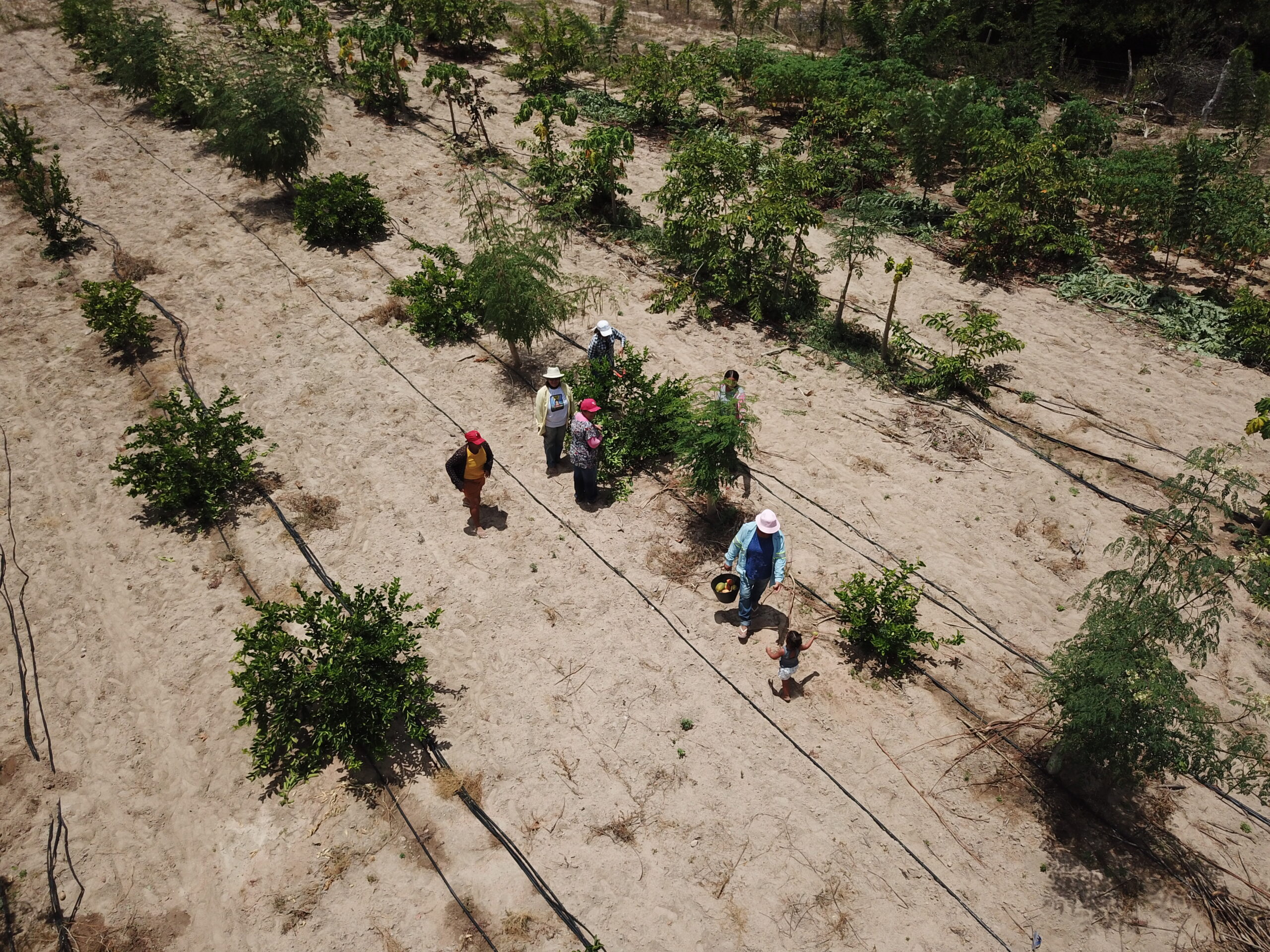ASTANA – Medical herbs cultivation initiative helps the rural women of the Kyrgyz Republic address the dual challenges of environmental degradation and economic hardship, according to the new report by the United Nations Convention to Combat Desertification (UNCCD) and the Food and Agriculture Organization (FAO) of the UN published on Oct. 15.

Women produce up to 80% of food in developing countries, yet less than 20% of landowners are women, according to UNCCD report. Photo credit: UNCCD
The report features 35 case studies from Africa, Asia, and Latin America, showcasing women’s leadership in addressing drought resilience. Launched on the occasion of the International Day of Rural Women, the report titled Women-Led Solutions for Drought Resilience calls for better recognizing and supporting women-led efforts to protect vulnerable communities from the devastating effects of drought. It also underscores that women’s land rights are crucial for achieving food security.
In Kyrgyzstan, a visionary group of women has launched a project to cultivate medicinal herbs on degraded lands. Supported by Rural Development Fund, this endeavor is designed both to rejuvenate the compromised lands and to provide a sustainable source of income for the participating women. Leveraging the region’s biodiversity, the project selects medicinal herbs renowned for their healing properties and well-suited to the local environment.
Strategically implementing herb cultivation in small plots near homes serves a dual purpose. It facilitates land restoration while addressing a significant societal concern – the risk of gender-based violence associated with traditional patriarchal norms against women working outside their homes. Often from vulnerable groups, these women face isolation and limited economic opportunities aggravated by the harsh mountain terrain and the impacts of climate change.
The harvested herbs undergo meticulous processing before reaching local markets, ensuring a steady income for the women and promoting the traditional medicinal heritage of the region. Beyond economic benefits, the initiative elevates the status of these women within their communities, recognizing and valuing their expertise in service level management (SLM) and herbal cultivation. The project initiates a ripple effect through knowledge-sharing and skill-building initiatives, fostering a sense of community empowerment and environmental stewardship.
The report highlights that the initiative emerges as a beacon of hope in the Kyrgyz Republic’s remote mountain areas, showcasing that sustainable practices can yield positive economic and ecological outcomes.
“Women have long been viewed as the most vulnerable to drought, but as this report reveals, they are also the most resilient, leading the way in developing solutions to one of the world’s most pressing challenges,” said UNCCD Executive Secretary Ibrahim Thiaw.
“The ingenuity and resourcefulness of women combating drought around the world is boundless. Whether in the Africa’s Sahel region, in northern Kenya, in Iran, in Peru or in Morocco, women have proven their resilience and their ability to overcome the most inextricable conditions to keep their families thriving. Addressing gender inequality is not only about fairness—it is an opportunity to harness untapped potential in the fight against climate change,” he added.
Challenges
Despite the progress made in the SLM project led by women in drought-prone regions of the Kyrgyz Republic, several challenges have emerged that require attention and strategic solutions.
Limited access to resources, including land and water rights, is a persistent challenge. Many women face barriers in securing ownership or tenure over their cultivated lands, hindering their ability to implement long-term sustainable practices. Addressing this issue requires advocating for gender-inclusive land policies and securing legal rights that empower women as land stewards.
Other barriers include limited infrastructure and technological support, socio-cultural barriers, limited market access and chain integration, and limited education and skills gap.
Global outlook
The report underscores the global inequality in land ownership, with women facing significant disadvantages. Women produce up to 80% of food in developing countries, yet less than 20% of landowners are women. This disparity limits their access to resources such as credit and training and their ability to prepare for and recover from droughts, exacerbating their vulnerability to climate change.
Women and girls are also disproportionately affected by drought due to persistent structural gender inequalities that limit their access to essential resources such as land, water, and financial services. These inequalities also place formidable workloads on women and girls.
Up to 40% of the world’s land is degraded, affecting over 3.2 billion people. As a result of land degradation and drought, many women are forced to walk longer distances to access clean water and gather fuel wood for their families.
Droughts contribute to 15% of disaster-related economic losses globally and are responsible for 85.8% of livestock deaths. In rain-fed agricultural regions, drought threatens the livelihoods of women, who make up a significant portion of the agricultural labour force.
Research shows that securing land rights for women improves household nutrition, increases spending on children’s education, and enhances overall economic conditions.
